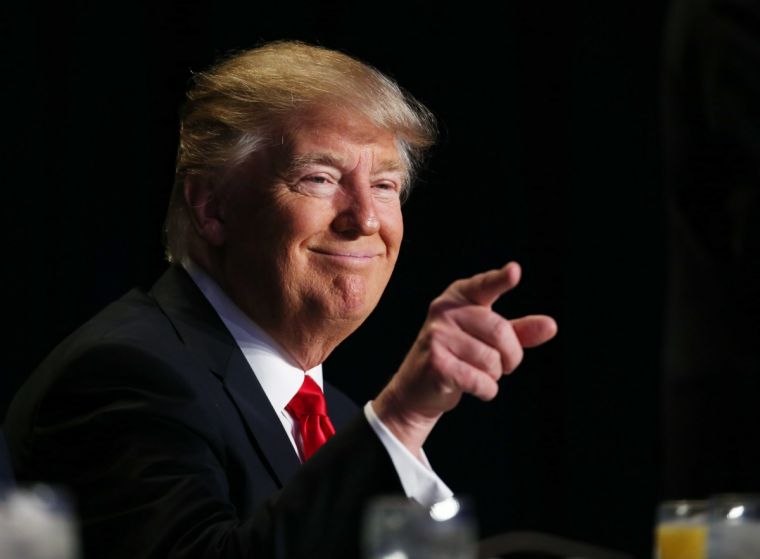Trump releases plan to repeal Johnson Amendment and allow churches to endorse political candidates
Donald Trump's tax reform bill will allow church leaders to endorse political candidates in a reversal of a 63-year-old rule in American law.
The proposed change was buried in the 429-page bill finally published on Thursday and would mean churches would not lose their tax-exempt status if they endorsed political parties, campaigns or candidates.

Known as the Johnson Amendment after being initiated by President Lyndon Johnson when he served as a senator, the clause prohibits tax-exempt charitable organisations such as churches from participating directly or indirectly in any political campaign to support or oppose a candidate. If the US Internal Revenue Service (IRS) determines that a group has violated the law, it can revoke its tax-exempt status.
Repealing the Johnson Amendment has long been a political ambition of the religious right which sees it as a restriction of free speech. Critics fear that if the law were repealed and churches and faith leaders allowed to endorse and support candidates, religious support could become a huge factor in US politics. Under the current system church leaders can 'issue guidance' to voters and encourage voting, organise voter education events and preach on political issues, but not endorse or openly support a particular candidate.
Critics also warn it would allow tax-free money to be funnelled through churches to fund political campaigns.
There are also concerns it would politicise churches in America even more. In August after Trump vowed to 'totally destroy' the amendment a group of more than 4,000 church leaders wrote a letter to Congress urging against any repeal saying it 'would harm houses or worship, which are not identified or divided by partisan lines'.
It comes after Trump signed an executive order in May encouraging the IRS not to enforce the law after it became clear he could not change it without legislation passing through Congress.
The bill marks the fulfilment of a campaign promise to repeal the Johnson amendment.











